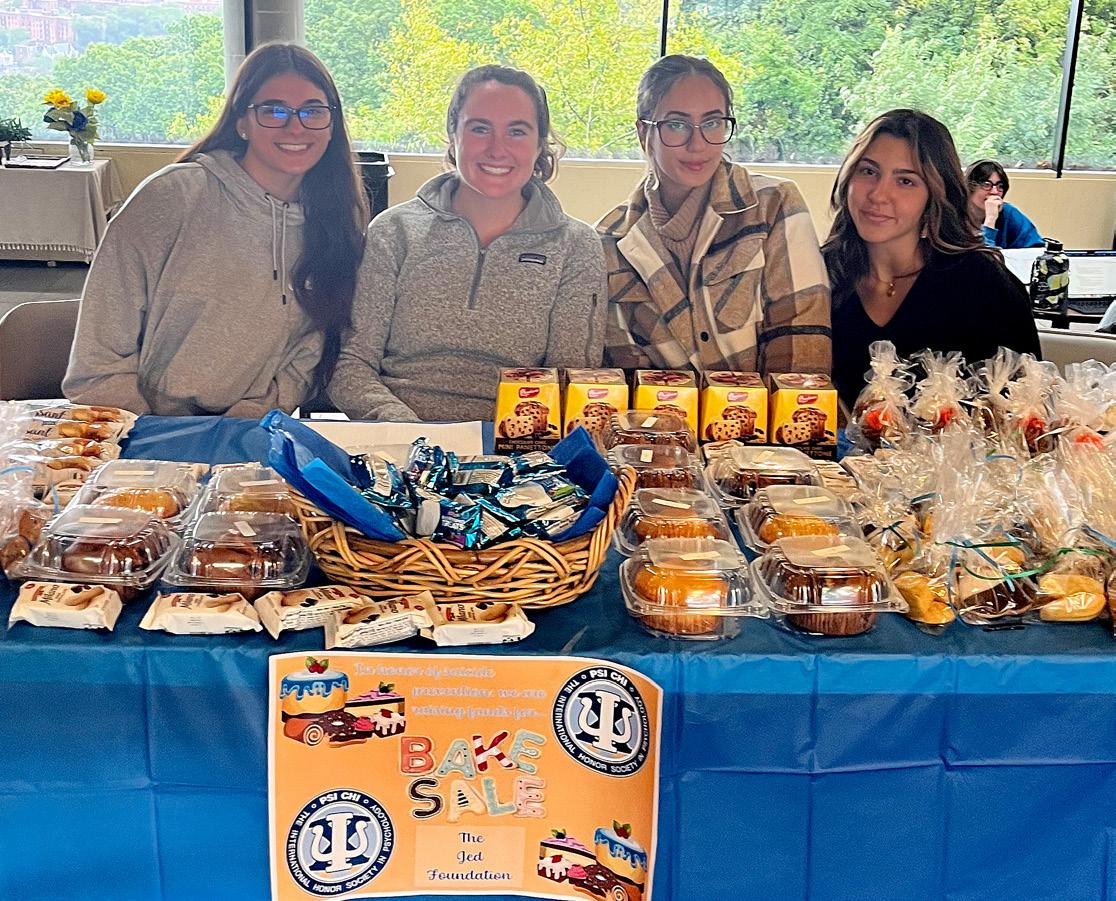
2 minute read
The Path Forward
If you are in the process of cultivating brave spaces for your organization, here are a few tips to get you started:
Determine who you are trying to serve.
Is the goal to make a space specifically tailored to a group not currently being served by the organization or to create a forum for everyone to engage?
Decide what the mission and purpose of the group are.
Crafting a mission statement can assist with this step. Are you centering group efforts on building community, engaging students or community members, advocacy work, social justice initiatives, or combining all of the above? Having a clear vision can help direct the establishment and sustainment of the group you create.
Acknowledge that doing everything at once is not realistic.
Although we want to make sure that we have spaces where everyone can find a point of entry, it is unreasonable to assume that we can go from lacking inclusive spaces to an all-inclusive climate overnight. While you tackle multiple issues, you cannot fix everything simultaneously with a single solution. A multitude of strategies are likely necessary, and this is ok.
Do not overload those individuals willing to do the heavy lifting.
If you have someone doing JEDI work and doing it well, let them continue to engage reasonably. There is a tendency to overload those who volunteer to do some aspect of social justice work with all of it. Try to avoid doing this and provide some reasonable means of compensation for the work they are doing.
The work is not done when
the group(s) begins.
Revisit, revise, and relearn to ensure that you continuously operate in the best practices possible for the JEDI space.
Lastly, consider the words of Audre Lorde:
“If I didn’t define myself for myself, I would be crunched into other people’s fantasies for me and eaten alive” (Lorde, 2007, p. 134).
Ensure you are engaging those you desire to serve in the conversation as early and as often as possible. Despite best efforts and intentions, no one knows the wants and needs of their community better than those who belong to it.
References
Abdullah, C., Karpowitz, C. F., & Raphael, C. (2016). Affinity groups, enclave deliberation, and equity. Journal of Public Deliberation, 12 (2), Article 6. https://doi.org/10.16997/jdd.258
Akbar, M., & Parker, T. L. (2021). Equity, diversity, and inclusion framework (Report). American Psychological Association’s Equity, Diversity and Inclusion Office. https://www.apa.org/about/apa/equity-diversity-inclusion/framework.pdf
American Psychological Association. (n.d.). Diversity. In APA dictionary of psychology. Retrieved December 18, 2022, from https://dictionary.apa.org/diversity
Arao, B., & Clemens, K. (2013). From safe spaces to brave spaces: A new way to frame dialogue around diversity and social justice. In Landreman, L. (Ed.), The art of effective facilitation: Reflections from social justice educators (pp. 135–150). Stylus Publishing.
Lorde, A. (2007). Sister outsider: Essays and speeches by Audre Lorde Crossing Press.
Myers, K., Trull, L. H., Bryson, B. J., & Hyong, S. Y. (2019). Affinity groups: Redefining brave spaces. Journal of Baccalaureate Social Work, 24 (1), 1–18. https://doi.org/10.18084/1084-7219.24.1.1
TBFSA. (2022). Texas Woman’s University Black Faculty and Staff Association. https://twu.edu/humanresources/workplace-diversity-inclusion/affinity-groups/
Gabrielle P. A. Smith, PhD, is an experimental social psychologist and associate professor of psychology at Texas Woman’s University (TWU). Dr. Smith received her bachelor’s from Spelman College, and a master’s degree in Women’s Studies and a master’s and PhD in social psychology from the University of Alabama. Dr. Smith’s research examines the intersection of marginalized social identities with specific emphasis on race, gender, and socioeconomic status. Dr. Smith’s previous work explores how social identities exacerbate or buffer against social problems for African American women, women in the workplace, and U.S. Black immigrant populations. Dr. Smith is the current Southern region liaison for Fund Development Secretary for the National Urban League Young Professionals and the current Diversity Director for the Psi Chi Honor Society.









